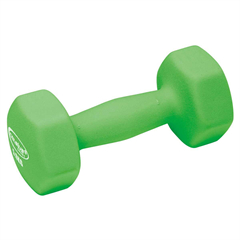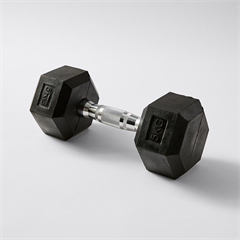Nutrition plays a vital role in fueling your workouts and maximizing their effectiveness, especially when incorporating dumbbell exercises into your fitness routine. Here are some key nutrition tips to help you get the most out of your workouts:
1. Stay Hydrated:
- Proper hydration is essential for optimal exercise performance. Dehydration can lead to decreased energy levels, muscle cramps, and poor workout performance.
- Drink water throughout the day, and consider sipping on water before, during, and after your workout.
2. Eat Balanced Meals:
- Consume balanced meals that include a combination of carbohydrates, protein, and healthy fats.
- Carbohydrates provide the primary source of energy for your workouts, so include whole grains, fruits, and vegetables in your meals.
- Protein helps repair and build muscle tissue. Include lean protein sources like chicken, fish, tofu, beans, or legumes.
- Healthy fats, like avocados, nuts, and olive oil, provide sustained energy and support overall health.
3. Timing Matters:
- Eat a balanced meal containing carbohydrates, protein, and fats 2-3 hours before your workout. This allows time for digestion and provides a steady source of energy.
- If you’re exercising first thing in the morning, a small, easily digestible snack like a banana or a piece of whole-grain toast with peanut butter can be beneficial.
- After your workout, consume a meal or snack rich in protein and carbohydrates to aid in muscle recovery.
4. Pre-Workout Fuel:
- A small pre-workout snack can provide a quick energy boost. Opt for easily digestible options like a banana, Greek yogurt, or a handful of nuts 30 minutes to an hour before your workout.
5. Post-Workout Nutrition:
- After your workout, prioritize a meal or snack that contains both carbohydrates and protein to replenish glycogen stores and support muscle recovery.
- A protein shake with added carbohydrates, a turkey and vegetable wrap, or a quinoa and vegetable bowl are good post-workout meal options.
6. Avoid Heavy, High-Fat Meals:
- Heavy, high-fat meals can lead to digestive discomfort during your workout. Avoid consuming large quantities of fried or greasy foods right before exercising.
7. Stay Hydrated During Exercise:
- During intense or prolonged workouts, consider sipping on a sports drink or water with added electrolytes to replace fluids and minerals lost through sweat.
8. Listen to Your Body:
- Pay attention to your body’s signals. If you’re feeling hungry or fatigued before a workout, have a small snack. If you’re not hungry, don’t force yourself to eat.
9. Supplement Wisely:
- While a well-balanced diet should provide most of the nutrients you need, some individuals may benefit from supplements, such as protein powder or branched-chain amino acids (BCAAs). Consult a healthcare professional or registered dietitian before adding supplements to your routine.
10. Plan Ahead:
- Meal planning and preparation can help you ensure you have nutritious options readily available for your workouts, reducing the temptation to reach for less healthy choices.
Remember that individual nutrition needs can vary based on factors such as age, gender, workout intensity, and goals. It’s essential to tailor your nutrition plan to your specific needs and consult with a registered dietitian or nutritionist if you have specific dietary concerns or goals. Nutrition should complement your exercise routine to help you achieve your fitness goals and maintain overall health.


















